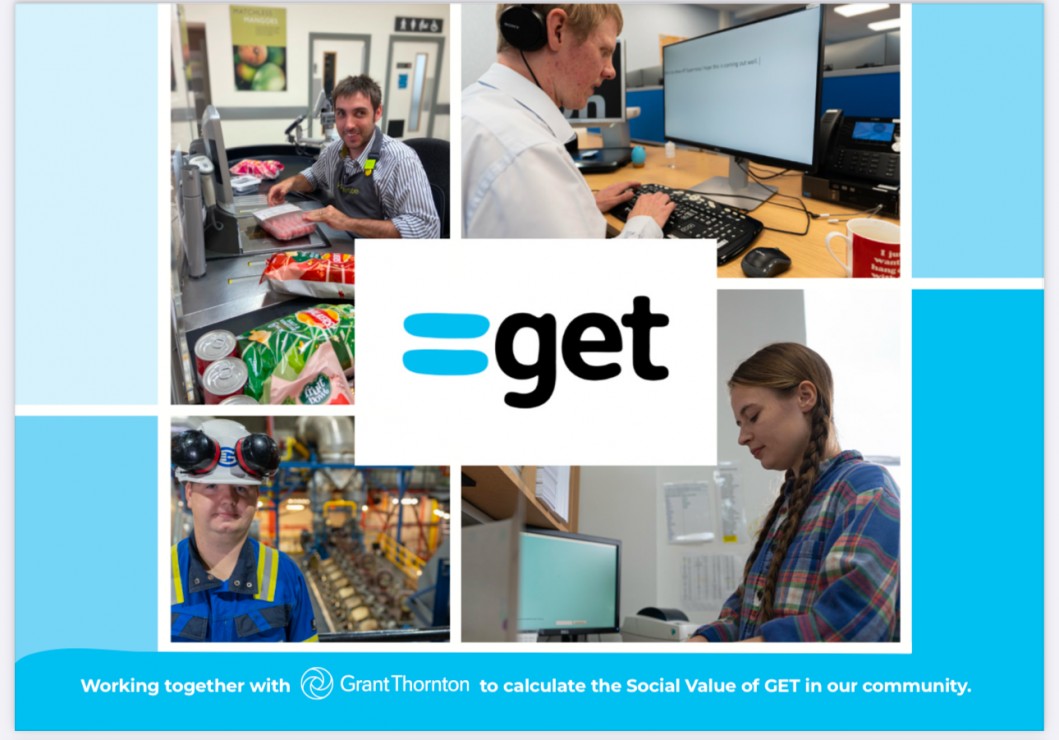Guernsey Employment Trust's Potential Social Value £3.6m

The Guernsey Employment Trust has turned to experts in social value to determine the wider benefit that it brings to the island.
‘Social value’, which describes the positive change that an organisation creates in its local community, can be expressed as a financial sum.
GET partnered with Dipak Vashi, the ESG Lead from Grant Thornton Limited who has experience of working with the Jersey Employment Trust, to determine the social value of its work.
GET provides disabled and neurodivergent individuals with opportunities for meaningful work. While some of GET’s clients and employers are eager to share their success stories publicly, others prefer to celebrate their achievements discreetly. Until now, the financial value of GET’s efforts have not been quantified.
Nikki Ioannou-Droushiotis (CEO of Guernsey Employment Trust) said: “Day to day, we focus on individuals’ progress and the impact that our work has on their lives. Thanks to Dipak and his colleagues at Grant Thornton Limited, we have been able to measure the broader impact of our work. Although challenging to quantify, calculating social value can motivate staff and volunteers, facilitate project comparisons, and support fundraising efforts."
Mr Vashi explained some of the methodology behind his calculations:“The project assessed the paid job outcomes secured by GET in 2023 and the support provided to individuals to maintain their employment. The project also assigned a monetary value to unpaid placements, where individuals worked for free to benefit our community.”
Grant Thornton Limited estimated the total potential social value of GET’s work in 2023 to be £3.6 million. “Excluding the States’ grant funding,” said Mr Vashi, “the potential return on investment for every £1 of taxpayer money is £3.67.”
Nikki added, “The term ‘potential’ is worth emphasising. This is not an exact science. Ideally, we would calculate actual savings on benefits for individuals in work and look at revenue generated from tax and social insurance contributions."
But GET does not have access to real-time data. To address this, we had to make certain assumptions, for example around instances when benefits like income support would cease to be payable because of paid work, and we made adjustments to reflect average client wages based on employment sectors, hours worked, and GET’s job retention rate.”
Ed Ashton, the Director of Operations, Social Security & Inclusion at the Office for the Committee for Social Security and Employment, said: “Through working in partnership with GET, the value of its services for clients and employers has been acknowledged for a long time, but it’s great that the overall social value has now been recognised in monetary terms. We look forward to continuing to work in partnership with GET and looking for ways to support GET’s further success."
This includes a new programme working in partnership with TGI College and GROW which seeks to expand access to training, employment and apprenticeship pathways for 19-25 year olds which was identified as part of the SEND Nasen Review.
Nikki added, “We are so grateful to Dipak Vashi – plus Louise McNamee and Jason Etheridge – from Grant Thornton Limited for their individual efforts and for their collaboration in calculating the potential value of our work, not just to our clients but to the Island as a whole."
Read the report here GET Potential Social Value Report.pdf